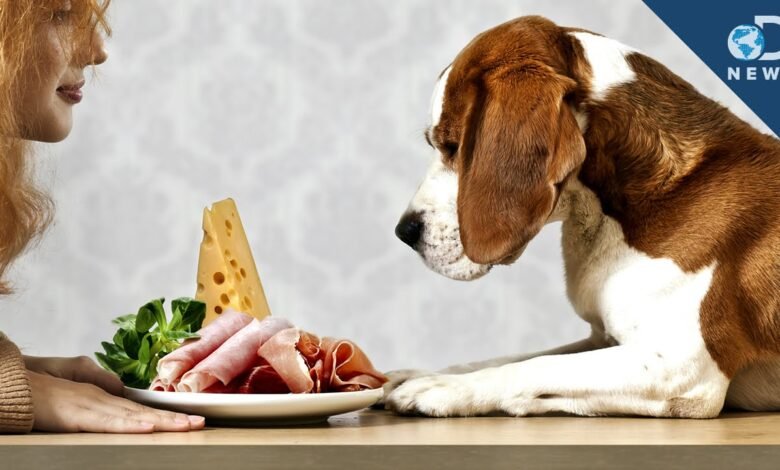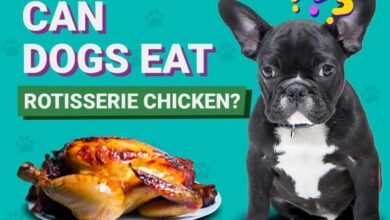Healthy Human Foods Your Dog Can Eat Safely

Have you ever wondered if your canine companion can enjoy some of the same foods you do? Adding safe human foods to your dog’s diet can provide more than just a change in flavor—it can offer nutritional benefits too. From crunchy vegetables to lean proteins, certain human foods can complement your dog’s regular meals and provide essential nutrients they might not get from commercial pet food alone. However, it’s important to remember that not all human foods are safe for dogs. Some can cause digestive issues or even be toxic. This is why consulting with your veterinarian is key before introducing any new foods into your dog’s diet.
Moderation and balance are essential when it comes to feeding dogs human foods. While these treats can be a tasty addition, they should be given in moderation to avoid weight gain or nutritional imbalances. Your veterinarian can provide guidance on which foods are safe and appropriate for your dog’s specific breed, age, and health condition. By working together with your vet, you can ensure that your dog enjoys a varied and healthy diet that supports their overall well-being.Now lets explore some safe human foods for dogs.
Fruits Safe for Dogs
Offering fruits as occasional treats to your dog can provide essential vitamins, minerals, and antioxidants. These fruits are generally safe and beneficial when given in appropriate portions and prepared properly:
Apples
Apples are a crunchy and nutritious snack for dogs, containing fiber, vitamin A, and vitamin C. They can help support digestive health and provide antioxidants that contribute to overall well-being.
- Fiber: Supports gastrointestinal health and can aid in regular bowel movements.
- Vitamins A and C: Contribute to immune function and promote healthy skin and coat.
Blueberries
Blueberries are rich in antioxidants and fiber, making them a beneficial snack for dogs. They can help protect cells from damage and support digestive health.
- Antioxidants: Help neutralize free radicals and may contribute to reducing inflammation.
- Fiber: Supports gastrointestinal health and can aid in maintaining a healthy weight.
Bananas
Bananas are a good source of potassium, vitamins B6 and C, and fiber. They are easy to digest and can provide a quick energy boost for active dogs.
- Potassium: Supports heart function and muscle health.
- Vitamins B6 and C: Contribute to overall immune function and energy metabolism.
Watermelon
Watermelon is hydrating and low in calories, making it a refreshing snack for dogs, especially during hot weather. It contains vitamins A, B6, and C, as well as antioxidants like lycopene.
- Hydration: Helps maintain overall hydration levels, important for overall health.
- Vitamins and antioxidants: Support immune function and help protect against cellular damage.
Pears
Pears are high in vitamins C and K, which contribute to immune function and bone health in dogs. They are a flavorful and nutritious addition to your dog’s diet when given in moderation.
- Vitamin C: Supports immune health and helps combat oxidative stress.
- Vitamin K: Contributes to blood clotting and bone health.
By offering these fruits as occasional treats and ensuring they are prepared appropriately—such as removing seeds and pits—you can provide your dog with additional nutrients and variety while promoting their overall health and well-being.
Vegetables Dogs Can Eat
Incorporating vegetables into your dog’s diet can provide essential nutrients, fiber, and variety. These vegetables are safe and beneficial when given in appropriate portions and prepared properly:
Carrots
Carrots are crunchy and low in calories, making them an excellent snack for promoting dental health in dogs. They are rich in beta-carotene, which supports eye health, and provide vitamins such as A, B6, and C.
- Dental Health: Helps clean teeth and gums, reducing plaque buildup.
- Vitamins: Aids in maintaining vision health and supporting immune function.
Green Beans
Green beans are nutritious and low in calories, making them a suitable addition to your dog’s diet, particularly for dogs watching their weight. They are high in fiber, which supports digestive health, and contain vitamins like K and C.
- Fiber: Supports gastrointestinal health and aids in maintaining regular bowel movements.
- Vitamins K and C: Contribute to bone health and immune function.
Broccoli
Broccoli contains vitamins C and K, although it should be given in small amounts due to its potential to cause gastrointestinal upset in some dogs. It also provides fiber and antioxidants that support overall health.
- Vitamin C: Supports immune function and helps with collagen production.
- Vitamin K: Essential for blood clotting and bone health.
Sweet Potatoes
Sweet potatoes are rich in fiber, vitamins A, C, and B6, and provide antioxidants that support immune health. They are also a great source of beta-carotene, which promotes vision health and overall well-being.
- Fiber: Aids in digestion and helps regulate blood sugar levels.
- Vitamins: Support immune function and promote healthy skin and coat.
Peas
Peas are packed with vitamins such as A, B1, B6, C, and K, as well as minerals like iron, magnesium, and potassium. They contribute to a balanced diet and provide essential nutrients for overall health.
- Vitamins and Minerals: Support various bodily functions, including energy metabolism and bone health.
- Fiber: Promotes digestive health and helps maintain a healthy weight.
By incorporating these vegetables into your dog’s diet in moderation and ensuring they are properly prepared—such as steamed or cooked without seasoning—you can provide them with essential nutrients and support their overall health and well-being.
Protein-Packed Human Foods for Dogs
Incorporating protein-rich foods into your dog’s diet is essential for muscle development, energy production, and overall health. These human foods are safe and beneficial when given in appropriate portions and prepared properly:
Cooked Chicken
Cooked chicken is a lean protein source that is highly digestible for dogs. It provides essential amino acids necessary for muscle growth and maintenance, making it a popular choice for homemade dog meals and treats.
- Lean Protein: Supports muscle development and maintenance.
- High Digestibility: Easy on the stomach and ideal for dogs with sensitive digestive systems.
Salmon
Salmon is rich in omega-3 fatty acids, such as EPA and DHA, which promote heart health, reduce inflammation, and support cognitive function in dogs. It is also a high-quality protein source that provides essential vitamins and minerals.
- Omega-3 Fatty Acids: Support skin and coat health, joint function, and immune system.
- High-Quality Protein: Provides essential nutrients for overall health and well-being.
Eggs
Eggs are a protein-rich food that contains all essential amino acids necessary for dogs. They are also rich in vitamins such as B12, riboflavin, and selenium, which support immune function and overall well-being.
- Complete Protein Source: Supports muscle development and energy levels.
- Essential Nutrients: Vitamins and minerals contribute to overall health and vitality.
Turkey
Turkey is a lean protein option that is low in fat and easy for dogs to digest. It provides essential amino acids and can be used as a flavorful addition to your dog’s diet, whether served alone or mixed with other dog-safe ingredients.
- Low-Fat Protein: Supports lean muscle mass without excessive calories.
- Digestibility: Ideal for dogs with sensitive stomachs or those on a weight management plan.
Plain Greek Yogurt
Plain Greek yogurt is a nutritious dairy option for dogs that contains probiotics, which support digestive health, and high-quality protein. It can be served plain or mixed with other dog-safe ingredients for a tasty and nutritious treat.
- Probiotics: Promote a healthy gut flora and aid in digestion.
- Protein-Rich: Supports muscle repair and growth in active dogs.
By incorporating these protein-packed human foods into your dog’s diet in moderation and ensuring they are properly prepared—such as cooked without seasoning or additives—you can provide them with essential nutrients and support their overall health and well-being.
Safe Grains and Carbohydrates for Dogs
Incorporating grains and carbohydrates into your dog’s diet can provide essential nutrients, energy, and fiber. These options are safe and beneficial when given in appropriate portions and prepared properly:
Rice
Rice is gentle on the digestive system and easily digestible for dogs, making it a common choice for dogs with sensitive stomachs or recovering from gastrointestinal upset. It provides carbohydrates for energy and can help regulate bowel movements.
- Digestive Health: Supports gastrointestinal function and aids in firming stools.
- Energy Source: Provides sustained energy levels without causing spikes in blood sugar.
Oatmeal
Oatmeal is high in fiber, which supports digestive health and helps regulate bowel movements in dogs. It is also a good source of complex carbohydrates, providing sustained energy throughout the day.
- High Fiber: Promotes satiety and aids in maintaining a healthy weight.
- Digestive Support: Helps soothe the digestive tract and reduce inflammation.
Quinoa
Quinoa is a complete protein containing all essential amino acids, making it a nutritious alternative to traditional grains for dogs. It is rich in vitamins, minerals, and antioxidants, contributing to overall health and well-being.
- Complete Protein: Supports muscle development and repair.
- Nutrient-Dense: Provides essential vitamins and minerals for optimal health.
Barley
Barley is a nutritious grain that is high in fiber, which supports digestive health and helps regulate blood sugar levels in dogs. It provides essential nutrients such as manganese, selenium, and vitamins B1 and B3.
- Fiber-Rich: Promotes satiety and aids in maintaining a healthy weight.
- Nutrient-Dense: Provides vitamins and minerals essential for overall health.
Whole Wheat Bread
Whole wheat bread, when given in moderation, can provide dogs with energy and fiber. It is important to choose bread without added sugars, salt, or artificial ingredients that could be harmful to dogs.
- Energy Source: Provides carbohydrates for sustained energy levels.
- Fiber Content: Supports digestive health and helps regulate bowel movements.
By incorporating these safe grains and carbohydrates into your dog’s diet in moderation and ensuring they are properly cooked and served plain, you can provide them with essential nutrients and support their overall health and well-being.
Healthy Snacks and Treats for Dogs
Offering healthy snacks and treats can add variety to your dog’s diet while providing essential nutrients and enjoyment. These options are generally safe when given in appropriate portions and prepared properly:
Peanut Butter
Peanut butter is a favorite treat for many dogs due to its rich flavor and texture. It is a good source of protein and healthy fats, but it’s important to choose unsalted varieties without added sugars or xylitol, which can be toxic to dogs.
- Protein: Supports muscle development and repair.
- Healthy Fats: Provides essential fatty acids for skin and coat health.
- Moderation: Peanut butter is calorie-dense, so it should be given sparingly to avoid weight gain.
Cheese
Cheese is high in protein and calcium, which are beneficial for dogs in small amounts. It can be used as a training treat or added to meals for extra flavor. Opt for low-fat varieties and be mindful of lactose intolerance in some dogs.
- Calcium: Supports bone health and teeth strength.
- Protein: Supports muscle development and repair.
Popcorn
Plain, air-popped popcorn can be a low-calorie and crunchy treat for dogs. It is a good source of fiber and can provide mental stimulation during treat time. Avoid popcorn with added salt, butter, or seasonings, as these can be harmful to dogs.
- Fiber: Promotes digestive health and helps regulate bowel movements.
- Moderation: Popcorn kernels can pose a choking hazard, so it should be served in small, bite-sized pieces.
Applesauce
Unsweetened applesauce can be a tasty and digestible treat for dogs. It is rich in fiber and natural sugars, which can aid in digestion and provide a flavorful alternative to other treats. Ensure it does not contain added sugars or artificial sweeteners.
- Fiber: Supports gastrointestinal health and aids in regular bowel movements.
- Vitamins: Provides vitamins A and C, which contribute to immune function and overall health.
Plain Rice Cakes
Plain rice cakes are a low-calorie and easy-to-digest snack option for dogs. They provide carbohydrates for energy without added sugars or fats, making them suitable for dogs on a weight management plan or those with sensitive stomachs.
- Low-Calorie: Helps maintain a healthy weight and provides energy.
- Digestibility: Easy on the digestive system and suitable for dogs with gastrointestinal sensitivities.
By offering these healthy snacks and treats to your dog in moderation and ensuring they are free from harmful additives or seasonings, you can provide them with nutritious options that contribute to their overall health and well-being.




